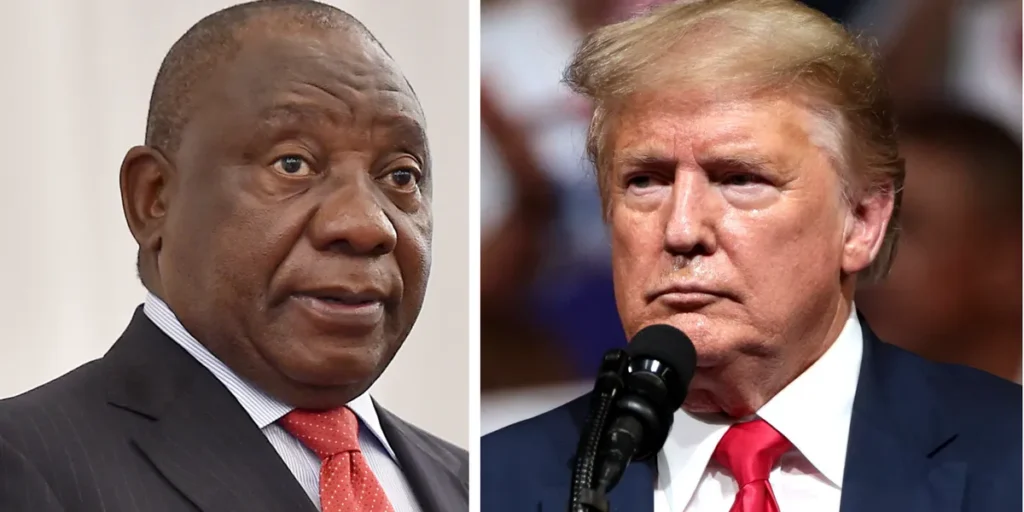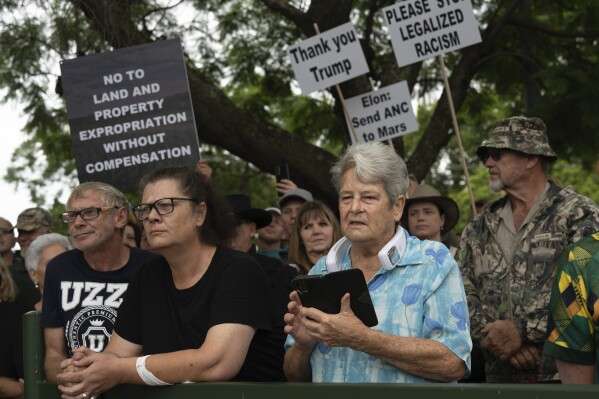Over the last few years, the term “white genocide” has been circulated by far-right movements and has made its way into some spheres of U.S. politics, claiming that white South African farmers are “being systematically exterminated.” It began to gain prominence internationally in 2018 when then-President Donald Trump resurfaced the topic and made headlines with his tweets about farmers in South Africa being killed on a large scale, and worries about land seizures.
However, the evidence from the South African Police Service (SAPS) and independent investigations of farm murders debunk this myth. In 2024, SAPS (South African Police Service) recorded 44 murders linked to farming communities, with only eight confirmed victims being farmers. Of those murders, based on South Africa’s high homicide rate, it would be a drop in the ocean. Most farm attacks are just robbery crimes, and almost all the time, there is no racial motivation. The official investigation of about 2,700 farm attacks in South Africa found only 2% racial motivation.
White South Africans make up approximately 9% of the total population. There are relatively few murder statistics in which white people were involved. One police analysis of homicides in 2009 showed 1.8% of the victims were white, which is thought to hardly justify the terms typically used in the scholar’s argument, targeted racial extermination. This land reform process, and its aim to deal with historical unfairness, has been twisted by some to mean that all South African land reform processes are racially framed attacks against white farmers. South Africa’s land expropriation processes are legal for land matters and have not led to mass violent land taking.
The “white genocide” narrative has put a strain on diplomacy. South African Government officials have repeatedly denounced the claims of a white genocide as untrue and harmful to social cohesion. Though fake, the misinformation distracts attention away from the real issues that afflict South Africa – economic inequality and crime, which affect all communities.
Why Does the US Target South Africa on This Issue?
The United States amplifies the “white genocide” narrative for several strategic reasons. Domestically, it serves as a rallying point for right-wing groups and politicians who seek to energize their base by promoting fears of “white victimhood.” This plays into broader ideological agendas that exploit cultural anxieties. Internationally, South Africa’s role as a key BRICS member and influential African nation challenges Western dominance. By casting South Africa negatively, the US aims to weaken its regional influence and gain diplomatic leverage. Additionally, focusing on South Africa’s alleged racial conflicts diverts American public attention from persistent racial and social issues within the US. US media outlets often sensationalize such stories to attract viewership, regardless of factual accuracy.
Benefits for the US in Promoting the Myth
By pushing this narrative, the US benefits politically by consolidating conservative voters around a shared grievance. Geopolitically, undermining South Africa supports US interests in African trade, resources, and alliances. The narrative also provides moral justification for sanctions or diplomatic pressure, even if the evidence is lacking. Criticizing South Africa’s land reform efforts protects multinational business interests by portraying reforms as violent and destabilizing. Lastly, emphasizing racial violence abroad deflects attention from America’s own social inequalities, shifting blame externally.
Conclusion
The “white genocide” claim in South Africa is a politically motivated myth unsupported by credible evidence. While crime and social challenges exist, framing them as racial extermination distorts reality and fuels division. The US amplification of this false narrative reflects its own political and strategic aims, rather than South Africa’s complex realities. Responsible discourse, based on facts and context, is vital to counter misinformation and foster meaningful progress for all South Africans.


